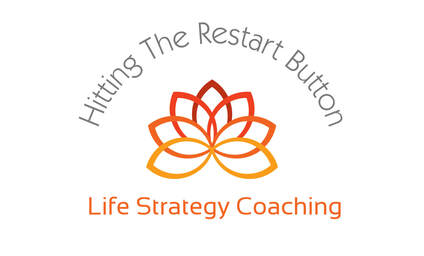|
Whenever there is a major life change, negative emotions come with it. These can include uncertainty, stress, anxiety, helplessness and fear...just to name a few.
Divorce Can Set Off Our Stress Response In the case of divorce, an individual's well-being is not only impacted significantly in an emotional way, but it will have lasting effects on their physical existence. When so much is turned upside down, it's no wonder fear is set off. What Happens Biologically When You Are Afraid? “Fear is our survival response,” says Northwestern Medicine Clinical Psychologist Zachary Sikora, PsyD. What's more, "although fear is experienced in your mind, it triggers a strong physical reaction in your body." This is not a case of mind over matter. "Fear reaction starts in the brain and spreads through the body to make adjustments for the best defense, or flight reaction," according to Arash Javanbakht and Linda Saab. First, the amygdala (small organ in the middle of your brain) is stimulated and alerts your nervous system, which sets your body’s fear response into motion. Next, stress hormones like cortisol and adrenaline are released. Then, your blood pressure and heart rate increase. The results include breathing faster, changes in blood flow begin whereby blood actually flows away from your heart and into your limbs, preparing for fight-or-flight. Almost everything about the divorce process can be sensed as danger, thereby setting off this biological response. How Does Fear Affect Rational Thinking? According to Louise Delagran, MA, MEd of the University of Minnesota, "Fear can interrupt processes in our brains that allow us to regulate emotions, read non-verbal cues and other information presented to us, reflect before acting, and act ethically." She goes on to say, "this impacts our thinking and decision-making in negative ways, leaving us susceptible to intense emotions and impulsive reactions." If you have gone through divorce or are in the business of working with divorcing individuals, you can attest to what I lovingly refer to as "losing IQ points." It's not that they are not smart, reasonable and even educated, but that fear is most prevalent and causing physical reactions that impact the cognitive functions. What Is Fear's Affect on Decision Making? To put it in simple terms, especially in light of divorce, fear causes a sort of rational shut down and a sort of regression as a result of three overarching reactions. 1. Self Focused Whenever we are in the fight or flight mode, which is activated when we sense danger, "we get very self-focused because we are in “protection mode,"" according to Missouri Partners in Prevention. This is our way of keeping ourselves safe. As a result, it is very difficult to be focused on anything else outside our own survival. This is one of the reasons that people going through divorce are unable to understand a different point of view or seem unreasonable, as they are hyper-focused on themselves. 2. Sense of Lack When we experience fear, our perception shifts to a sense of lack or scarcity. It feels as if there is not "enough" which sparks the belief that it is necessary to fight for what we need. In the case of divorce, this "not enough" view can make it difficult to see the bigger picture and often the true reality. 3. Wants Become Needs In a rational, calm state, discriminating between wants and needs is easy. However, feeling afraid can blur the lines between the two because our fear reaction activates the part of our brain that dominated our thinking in childhood. This is the reason that so many individuals going through divorce act and react in a very immature manner, even to the point of throwing "tantrums" uncharacteristic of their otherwise normal behavior. How Do You Work With The Fear? First and foremost, it is important for those professionals working with divorcing individuals to understand the biological reactions that are happening with their clients. In this way, there is a greater possibility of "reaching" or getting through to your client with the facts to make decisions that are in their best interest and to facilitate a quick and non-contentious divorce. If you yourself are going through divorce, you can comfort yourself with the fact that your fears are real to you and that with some slowing down and quiet reflection, you can turn that fear into empowered, well thought out decisions and action steps for ensuring the best possible post-divorce life. Define The Fears Releasing fear is first about recognizing what the underlying reason(s) for feeling afraid. This is why a therapist or divorce coach is so imperative because as an objective support system, they can gently guide individuals to consciously identify exactly what is setting off the fear. Defining fears leads to demystifying them and opens a path out of fight or flight mode. In this way, it becomes possible to think more clearly and make better decisions. Feel The Pain Once the fears have been identified, an individual will often feel some pain, specifically as it relates to the loss of the marriage, the family unit, the life they know and so much more. However, it can be quite healing and free up lots of psychic energy, which allows for better identification of the new challenges that come with divorce and creating action steps to constructing a new life. -Elisa
0 Comments
If someone would have said to me at any time during the two years of my divorce, "Hey Elisa, you should practice gratitude - it will really have a positive impact on your life," I probably would have unleashed a mouthful of superlatives that would have blown their hair back.
While I was dealing daily with the nefarious bullying of my ex-husband, along with the fear, overwhelm and frustration of my post-divorce life, gratitude was the furthest thing from my mind. In fact, it took some time to realize how my life could have vastly improved during my divorce had I truly understood the scientific benefits of gratitude. So, at the risk of incurring your wrath, I'm going to tell you 6 reasons why you can and should incorporate gratitude practice into your daily life, no matter which stage of divorce you may be at. 1. Gratitude Improves Overall Health Research has shown that gratitude can improve general well-being, increase resilience, strengthen social relationships, and reduce stress and depression. In fact, it shows that just 15 minutes a day can enhance mental wellness. 2. Gratitude Changes Your Perspective When we change our perspective it can help us manage the stress of divorce and even avoid escalating situations that normally would trigger us. We turn our focus from all that is challenging and bad to that which is good. 3. Gratitude Brings The Future To Your Present When we’re grateful it’s usually for something we already have - meaning it’s already in our present reality. Logically speaking, if we feel grateful for that which we want as if it's already here, we are propelling ourselves into the future feeling we would have if we were already experiencing that reality. Such feelings resonate in our body and tell our brain that we are already there, because according to Dr. David R. Hamilton, "our brains can’t tell the difference between reality and our thoughts." In one study of two groups of individuals, one was asked one to play a specific set of keys on the piano while the other was told to imagine playing a set of keys. Under both circumstances, while being scanned, brain activity significantly increased in brain regions corresponding to motor movement of the hand. For those going through divorce, gratitude enables you to psychically begin living the life you want by being grateful for it as if it is already here. 4. Gratitude Raises Your Vibrational Frequency It is only in the very recent past that people are becoming aware of the importance of energy and the term "high vibration.". Everything in our world is made of energy and has a frequency. This includes objects, our bodies, thoughts and feelings. The faster something vibrates, the higher the frequency. Higher vibrational frequencies are associated with emotions that include joy, love, compassion, and gratitude, as opposed to lower vibrating emotions of fear anger and lack. When you practice gratitude, your vibrational frequency is being raised. Higher frequencies are also known to enable good health and happiness. So, for those going through divorce and feeling sad, fearful or in a state of lack, it is possible to train your mind and body to move into feelings of happiness and joy, by practicing gratitude. 5. Gratitude Changes Your Neural Pathways "Remember that behavior changes biology," according to the Mayo Clinic Health System. "Positive gestures benefit you by releasing oxytocin, a hormone that helps connect people. Some people call it the love hormone." Practicing gratitude also releases serotonin and dopamine, two “feel good” chemicals that positively impact mood, motivation, and willpower - as a result this can strengthen these neural pathways. The result is that over time, a conscious effort to practice gratitude can train the brain to focus on what’s going well as opposed to what’s going wrong. 6. Gratitude Attracts What You Want The Law of Attraction, in its simplest form says "like attracts like." Dr. Joe Dispenza teaches that we have the power to influence our reality by consciously directing our thoughts and emotions by "giving thanks for the things that you don't have yet." He asserts that "gratitude is the ultimate state of receivership." We have been trained to think that we should be grateful after we receive something and this puts us in a state of mind of always waiting and wanting. When we act as if and feel as if we have what we already want, the universe aligns with that feeling. And the law of attraction kicks in to literally bring us that for which we are grateful. This is the ultimate way of manifesting the life you want, and deserve post-divorce! - Elisa There is no question that divorce is a costly proposition with much truth to the statement that the only ones who get rich during divorce are the attorneys. Legal fees are one of the harsh realities of the divorce process. According to Contractscounsel.com, "Divorce costs in the United States can vary widely, with most people spending anywhere from $15,000 to $20,000 and a minimum cost of around $7,000." That is a lot of money to most people. Emotional Upheaval Makes It Hard to Think Clearly Unfortunately, the trauma of divorce wreaks havoc on daily life, and its emotional upheaval makes it difficult to almost impossible to think clearly about how one's actions might impact billable hours and increase their legal expenses. It is imperative, in spite of all that is being thrown at you, to stay focused on how to keep your legal fees at a minimum. Why would you want to spend more money than is necessary? For those monied spouses who are responsible for paying both parties' legal bills, you have twice as much to lose. 5 Common Mistakes From my own personal divorce experience and from what I have seen with many of my clients, here are five common mistakes that can unnecessarily drive your legal bills through the roof and solutions to avert them. 1. Using Your Lawyer As a Therapist Wow, I cannot tell you how many times I've seen this one play out. I fell victim to this during my own divorce. Most divorce attorneys will attest to the amount of time they spend talking to their clients about non-legal issues because they are so overwhelmed, angry or frustrated and don't know where to turn. With hourly rates being what they are in the divorce world, it is just not cost-effective to talk to your lawyer about every argument or disagreement with your soon-to-be ex-spouse. According to TheExit.com, the national average for divorce lawyer rates is $270 an hour, with New York at $400 an hour. I can tell you unequivocally, that this is far lower than reality. From my experience working with many lawyers in the New York-Metro area, average divorce hourly rates can range from $400 on the very low side to well over $700 and hour. Solution: Having the right professional to listen, provide perspective and help you work through your feelings and experiences productively is a far better investment than spending hours talking to your attorney. The right therapist or divorce coach can also assist with making the distinction between which issues are strictly emotional and those that need to be addressed with your attorney. Not only will you save on legal fees, but you will be working on your own empowerment and building a plan for a happy, fulfilling future. 2. Not Understanding Billing Practices Hourly billing is a common way lawyers charge for their services. Unfortunately, most people going through divorce do not ask enough questions or listen closely when lawyers explain the details of their billing structure. For example, most lawyers take a retainer - most commonly between $5000 and $10,000 - and then their "billable rate" will go against or be deducted from this retainer. At $500 an hour, that retainer can go pretty quickly. Your lawyer tracks all time spent on your case, which includes meetings with you, phone calls, reading and responding to email correspondence with you and the opposing counsel, research, preparing legal documents, court appearances, and any other tasks related to your divorce. If you have other professionals such as an accountant, that need to speak with your attorney, you will get billed for this time as well. Solution: Make sure you understand all billing practices for your lawyer's firm including their "increment billing" practices (how they break down the hour) so you can stay in control and avoid any surprises with legal fees being incurred. 3. Not Building Your Own Divorce Dream Team It is important to take a forty-thousand foot view of the specific areas of your life that will be affected by your marriage break-up and how to best address each of them. Your attorney knows the law, the legal system and what rights you have. However, they are not experts in every area that will make up your divorce agreement. All too often, individuals rely on their attorney to know the nuances of accounting, tax, financial planning, credit and other specific disciplines. You may be spending more money discussing these issues with your attorney or having your attorney argue with opposing counsel, rather than utilizing the expertise of professionals who can save you time and assist your attorney. Solution: Build a team of trusted professionals in key non-legal areas who can provide the right advice for negotiating the best possible divorce agreement terms for your future. These professionals not only charge less than your attorney, but some don't charge any fees at all, saving you legal bills and even enhancing your lawyer's ability to advocate for you in less time. A divorce coach can serve as the hub for clarity about the process and provide additional professional referrals. 4. Not Being Organized During divorce, you will have to access lots of information, records, and documents. Prior to my divorce, I really had no idea what I was going to have to provide and everything my lawyer requested was a new adventure in trying to pull things together. If you provide your lawyer with a big box of papers, receipts and financial records, it is pretty obvious that they will have to spend many billable hours sorting through everything and talking to you to fully understand it all. This can add thousands of dollars to your bill. Solution: The more organized you can be with your documents prior to even going for a consultation, the more economical it will be for you. I suggest meeting with your accountant or finding one who can direct you with what you need to put together. This will enable you to move forward with a better understanding of where you stand, as well as result in a more productive attorney consultation since you will be providing everything needed to advocate on your behalf. 5. Inability to Agree This may seem like a ridiculous point to put in here. You are probably thinking, "if we could agree, we wouldn't be getting divorced." However, what most people do not understand is that if you have decided to proceed with divorce, then the more you continue to disagree on how to finalize the terms, the more it will cost. Sadly, the biggest issue in delaying divorce and spending way too much money is the inability for one or both parties to be reasonable and give up being argumentative. I'm in no way saying this is easy. With emotions running high and a desire to "win", it's easy to get stuck in a cycle of arguing and feeling victimized. The result is unending back and forth between attorneys, additional court dates and yes, higher legal bills. Solution: Here is where working with a professional therapist or a divorce coach is your best bet for gaining clarity over the situation to facilitate perspective. If your soon-to-be ex-spouse is being difficult, you will be able to keep your eye on your new life goals and minimize being triggered to continually engage in the back and forth pattern that only serves to drive up billable hours. This is a key component for a quick resolution and minimizing your legal expenses. - Elisa If you are like me, you probably feel so overwhelmed by the divorce process - the legalities, the amount of time everything takes, disempowerment about what you expected versus what is the reality, and perhaps blown away by the cost. Not to mention all the emotions you are feeling - pain, hurt, anger, rage, fear sadness and guilt. And, although you may be an intelligent, self-starter, highly functional, and self-responsible individual in all areas of your life, divorce is one of those life experiences that can result in sudden self beliefs and behavior that is out of character for you. This includes falling into the "victim mentality" mindset. What is Victim Mentality? "At its core, a victim mindset is rooted in trauma, distress, and pain most of the time. When you experience a traumatic situation, typically at the hands of other people, you may learn that you are helpless and that nothing you do in the future is going to make any difference" according to psychologist and author, Arlin Cuncic, MA. Clearly with divorce, there is trauma by the very nature of breaking up a marriage and in most cases, an entire of family. The ways this life change impacts a person are numerous and unique to each situation, but commonly include new physical and financial demands, co-parenting stress and change in residence. These are justifiable reasons to feel a sense of being victimized. Feeling Like a Victim During Divorce is Normal Feeling hit from every angle, not getting what you want or expect is usually what causes this victimized feeling. Learning the reality of things like spousal support, child support, visitation, asset division, coupled with experienced advice from your lawyer and decisions rendered by a judge can be shocking, angering and leave you feeling defeated and out of control. In some cases this is further aggravated by having experienced infidelity, or even the hateful and purposeful vitriol of a narcissistic ex-spouse. What Characterizes A Victim Mentality? At its core, victim mentality is a mindset of learned helplessness. In the case of divorce, this is usually a feeling brought by this event and is not necessarily a personality trait. Nonetheless, it can overpower you with feeling out of control and unable to see the light at the end of the divorce tunnel. Some of the characteristics of victim mentality include:
Not Letting "Victim Mentality" Overtake and Define You While common during divorce, if left unrecognized or unaddressed, "victim mentality" mindset, can be self-defeating and detrimental to your sense of empowerment and well-being long-term. Sometimes circumstances just suck and you don't have the control you want. This does not mean that you should allow yourself to stay stuck in the internal belief that you are helpless. Instead, embracing the view that you are the architect of your life is key. A prolonged victim mentality causes you to lose perspective that you DO have control of the way you react to circumstances and an ability to create a path for the future life you want. How to Overcome A Victim Mindset? There are ways to take control of your divorce and regain normalcy. 1. Acknowledge the Feelings Validating your frustration, sadness and disappointment is a first step to healing feeling like a victim. 2. Self-Care With the right self-care and compassion, you can move through this. According to Arlin Cuncic, MA, "victim mentalities are subconsciously adopted as a way to cope, often from past trauma. Be compassionate to yourself in your recovery. Practice self-care and self-love. " 3. Knowledge is Power Empowering yourself early on in the process with basic divorce law norms and outcomes will lessen your shock and allow you to deal more pro-actively with what otherwise would have blindsided you and caused feelings of victimization. 4. Utilize Professional Experts Build a team of professionals in key disciplines such as divorce coaching, accounting, tax, insurance, financial planning, credit and loan. Many of these experts do not charge for consultations and it will enable you to have a 40,000 foot view of your unique situation and how to best approach your settlement agreement and future life plan. 5. Set Your Goals Having clearly defined goals for your post-divorce life allows you to keep blinders on to avoid getting sidetracked and triggered when things don't go the way you want or expect. In this way you are being the architect of your life. 6. Emotional Support Engage in practices that will support an empowered state of mind such as mindfulness, meditation, therapy or coaching, journaling and self help books. Love & Light - Elisa Getty images/Stockphoto When emotions run high during divorce, simple conversations can digress into highly contentious fights.
Can you relate to this if you have gone through or witnessed someone going through divorce? You may be talking about how the lawn needs mowing and the next thing you know, you are screaming about how HE bought his girlfriend a new car. This happens when you are filled with anger, rage, hurt, fear and overall sadness. Your emotions just escalate and are ready, at any moment, to explode. The Everest Syndrome I call this phenomenon "The Everest Syndrome" - you shoot right up Mount Everest in a nano second and all bets are off for any positive outcome. There is no room for healthy conversation or collaborate communication to create productive solutions. Everyone feels worse as a result, and it keeps you in a negative cycle. This not only wears on your self esteem, but also negatively impacts your emotional and physical well being. Getting Perspective Can Help Most people might view this as a self control problem. But in reality, it’s not. It’s really about not being grounded and having perspective. During divorce, the only way to have true perspective is to be focused on your priorities and end goals. Ever notice how when you are driving and following your GPS, you don’t really notice much along the way? You are so laser focused on following the directions to get to your end point destination that you couldn't recount much of what you passed during the drive. Stay Focused On Your End Goal This dynamic of having virtual blinders on is true for any challenging experience in life. In the case of divorce, where it is so easy to get derailed and fall into the trap of repeating the same old conversations and arguments, it’s imperative to know and stay focused on what your end goals are if you are to avoid "Everesting" when talking to your soon-to-be ex-spouse. Perspective is achieved when you are aware and in touch with the desired outcomes and goals you most want for your life post divorce. Defining your goals ("destination") involves knowing your priorities and having them in focus at all times. Questions to Help You Define Your Goals Ask yourself the following general questions:
Digging deeper and answer these questions:
Perspective is a Process With these self-focused desired outcomes top of mind, you will be more apt to keep blinders on and not getting derailed as easily when emotions run high during interactions with your soon-to-be Ex. You will gain more perspective, enabling you to step back, fall into a grounded state thereby reducing the the fever pitch feelings that might otherwise be right below the surface. You will start to view that which is not vital to getting to your end goals as a waste of time, and not be as primed to take the bate when disagreements arise. Over time, this will lessen the chances of discussions digressing into unproductive debates and screaming matches. As a Divorce Coach, I've seen what goal setting can do to maintain a laser focus on the big picture and minimize unproductive outbursts that only serve to waste time, lower one's vibration and increase legal bills. But remember, Rome wasn't built in a day. Like anything else in the face of difficult life changes, getting centered is a process. Saying your goals out loud and visualizing the desired outcomes daily as if they already exist will reinforce their importance for when you are faced with a potential Everest moment. - Elisa |
ELISA
|
|
Elisa Valentino
HOLISTIC BEHAVIORAL PRACTITIONER DIVORCE & LIFE TRANSITION COACH SPIRITUAL LIGHTWORKER PUBLIC SPEAKER PODCAST HOST |
©2024 Hitting The Restart Button







 RSS Feed
RSS Feed
